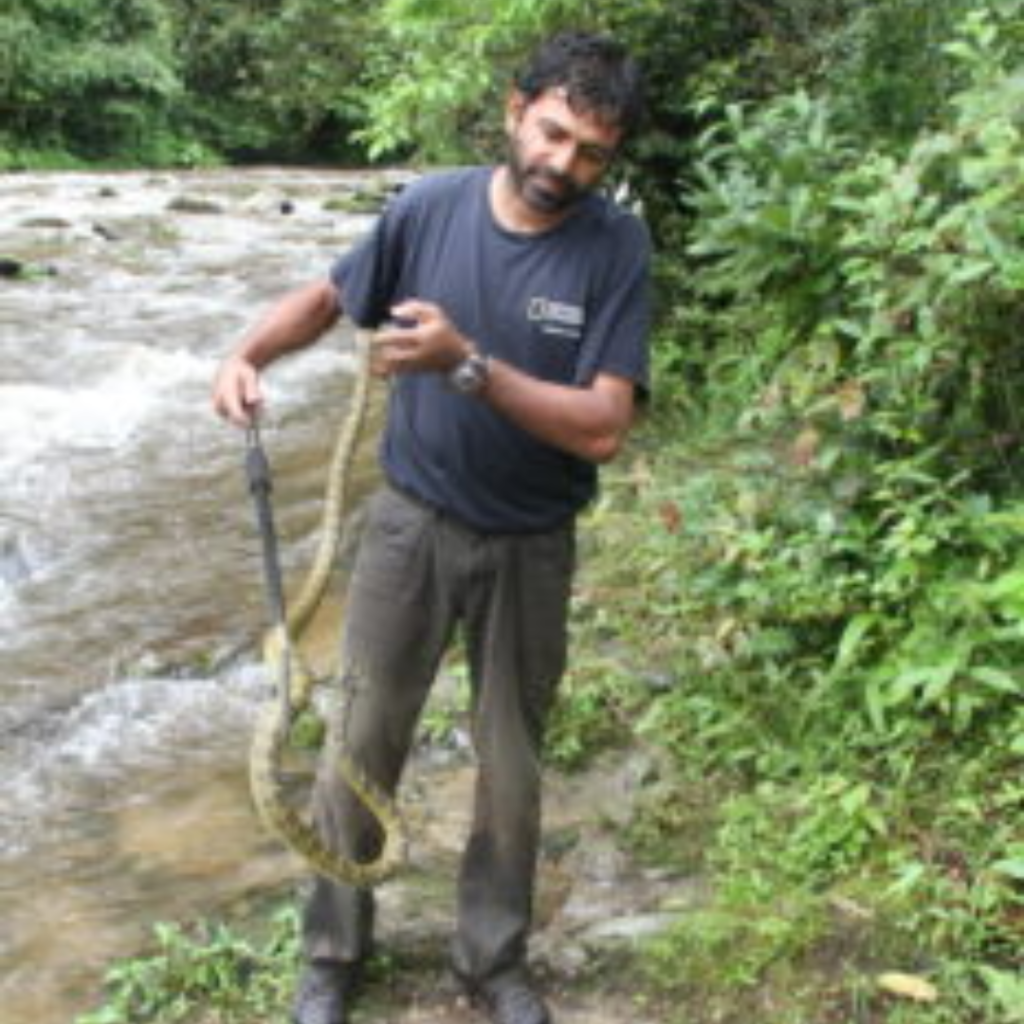Become a donor or member and support our work to advance access to medicines. For everyone. Everywhere
In 2019, a WHO-led global, strategic plan for control and prevention of snakebite, the so-called ‘Snakebite Roadmap‘, was presented at the 72nd World Health Assembly. This strategy commits to engaging communities as they play a vital role in prevention, community education, and effective first response.
In line with this roadmap, Health Action International and partners established the Snakebite Community Engagement Network. The overall objective of the Network is to contribute to WHO’s 2030 snakebite targets by strengthening the capacity of community experts to undertake coordinated responses that reduce snakebite deaths and disabilities around the world.
The network is open to any snakebite experts from Low- and Middle-Income Countries (LMICs) involved directly or indirectly in community-based work aimed at improving snakebite prevention, first-aid, and treatment. Those interested in joining the network must fill in this form. Your application will be assessed by the Steering Committee at their next meeting.
Meet our steering committee members
Hiral Naik is Chair of the Steering Committee. She is a herpetologist and conservationist, and she is currently a PhD candidate in the Alexander Herp Lab at the University of Witwatersrand in South Africa. Her research focuses on the behavioural ecology of venomous snakes in relation to snakebite and the eco-epidemiology of snakebite in South Africa.
Hiral is also the Africa Program Manager at Save The Snakes, a non-profit organisation dedicated to mitigating human-snake conflict globally. Hiral currently runs a snake education and outreach program in South Africa in collaboration with Hoedspruit Reptile Centre. Their Snake Education and Community Awareness Program (SECAP) involves working with learners at schools, community members and healthcare workers to educate them about snakebite and snake safety. The goal of this work is to mitigate human-snake conflict in the area and thus the number of snakebite incidences. Working at the interface between science and conservation, Hiral hopes to communicate the incredible science of snakes to others and prevent snakebites.
Taksa Vasaruchapong is a veterinarian of Snake Farm, Queen Saovabha Memorial Institute, the Thai Red Cross Society where thousands of snakes are raised in captivity for antivenom production, research and public education. He is currently a PhD candidate in animal physiology at the Faculty of Veterinary Science, Chulalongkorn University. His tasks relate to snake diseases and management programs for ensuring the snakes’ health status, field studies about snake biology, and research on snakes and snake venom. He has been a trainer for the Intensive Course on Snake Handling Practice Program since 2015, which is a training course for the public to handle snakes safely and perform proper venomous snakebite first aid. This course, initiated by Dr. Lawan Chanhome, aims to resolve the problem of snakes getting into human habitats which can lead to a sustainable reduction of snake-human conflict. He also works as a consultant in various organizations including as a reference person for snake identification at the Ramathibodi poison centre, a reptile veterinarian in both government and private veterinary hospitals, and as a consultant for the snake husbandry and health program at Siam Serpentarium. He is an invited lecturer in several well-known medical and veterinary schools in Thailand including Chulalongkorn University, Thammasat University, Mahidol University and Phramonghutklao College of Medicine.
Gerard Martin has been working with reptiles and other wildlife for over twenty-five years now. He began his career at the Madras Crocodile Bank Trust under Romulus Whitaker, where he was part of the team that first bred and successfully raised king cobras in captivity in India and has worked with a vast variety of other reptiles and amphibians.
Today, his focus is tackling the snakebite crisis in India and developing platforms by which local stakeholders can gain from and support conservation in their localities. Based in Karnataka, India, Gerry spearheads ecological and behavioural research that has direct implications on our understanding of the dynamics of snakebite as well as enables and assists in venom research around the country. He is setting up a serpentarium that will focus on research as well as providing high quality venom free of charge for the production of antivenom.
Denis Kibira (PhD) is the Chief Executive Officer of DUMAIC Global Health and the Coordinator of the Medicines Transparency Alliance (MeTA)-Uganda. He is a pharmacist, health systems researcher, policy analyst and health rights advocate. Denis’ research and advocacy work has influenced global, regional and national health and pharmaceutical policy. He holds a PhD in Pharmaceutical Policy from Utrecht University in The Netherlands; an MBA (Distinction), Advanced Health Management Program from the School of Public Health of Yale University and a Bachelor of Pharmacy (1st class). Denis has been instrumental in setting up a multistakeholder working group on snakebite management in Uganda and has been leading national efforts in improving snakebite management in the country through research and policy development.
María Elena Barragán-Paladines is currently the Executive Director of the Gustavo Orcés Herpetological Foundation, in Ecuador, with 30 years of experience in captive management, development, and execution of conservation programs in reptiles and amphibians; management and treatment of snakebite accidents, environmental education, and education with indigenous communities for snake-bite accident prevention. She is a Biologist with a Diploma in Endangered Species, from the University of Kent at Canterbury, UK, and the Durrell Institute of Conservation and Ecology, UK 1997. In 2012 she obtained a Master in Environment and Sustainability, Griffith University-Australia.
She is a member of the IUCN Venomous Snake Specialist Group (VSG) and a Co-Chair of the IUCN Human-Snake Conflict Working Group.
Her efforts and vision of work bet on education as a fundamental tool to implement concrete actions towards snake conservation of species.
Priyanka Kadam is the founder of Snakebite Healing & Education Society (SHE-INDIA.ORG), a national-level civil society aimed at preventing and controlling snakebites. She is an expert in snakebite prevention and control strategies and has been a member of WHO’s Global Snakebite Envenoming Working Group, which developed a strategy to reduce snakebite-related deaths and disabilities by 50% by 2030. Currently, Priyanka is working with the non-communicable diseases department of MoHFW to draft the National Guideline to Prevent and Control Snakebites.
Priyanka collaborates with ICMR (Indian Council of Medical Research), NCDC (National Centre for Disease Control), NCD (Non-Communicable Disease department), NHM (National Health Mission), WHO (India) and state-level Forest Departments in 4 states, state-level Health departments in 4 states, and grassroots NGOs and missionary hospitals in 12 states.
Priyanka’s organization has created community awareness content for snakebite prevention and first-aid in 14 regional languages, including Hindi, Marathi, Gujarati, Punjabi, Bangla, Assamese, Odia, Telugu, Tamil, Malayalam, Kannada, Nepalese, Santhali, and English. In 2020, Priyanka collaborated with Swiss TPH and colleagues from VAPAGuide.info to help build the Snakebite Assistant App for India. Launched in Sept 2022, it is a first of its kind learning tool for paramedics, doctors and nurses, researchers and the general public to learn how to deal with snakebites.





